#Harry Harrison
Text
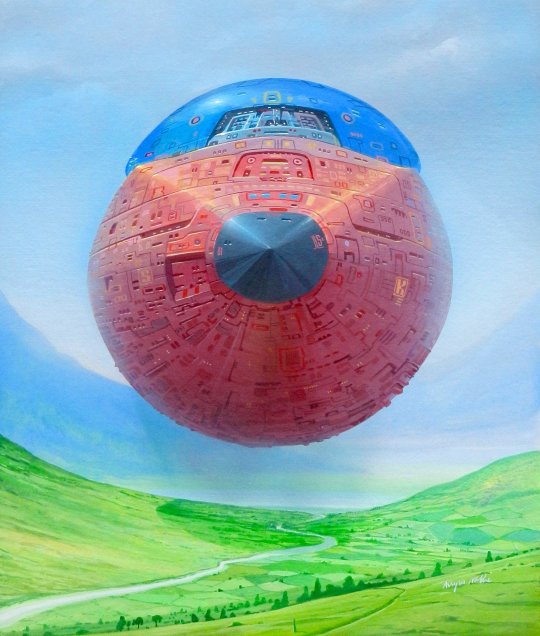
Angus McKie's cover art for Captive Universe by Harry Harrison, 1978.
223 notes
·
View notes
Text
George Picture of the Day 12-7-23
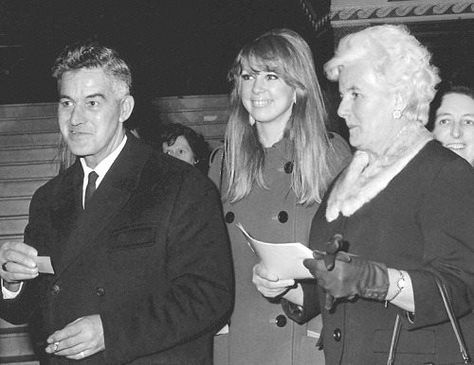
George's parents and Pattie...I think they were attending a Beatles' concert.
30 notes
·
View notes
Text
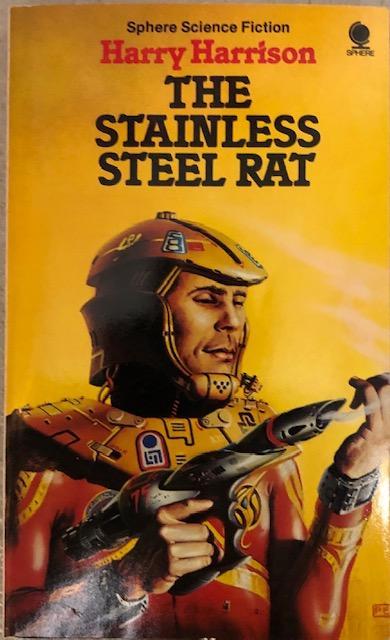
The Stainless Steel Rat by Harry Harrison
Art by Peter Elson
17 notes
·
View notes
Photo
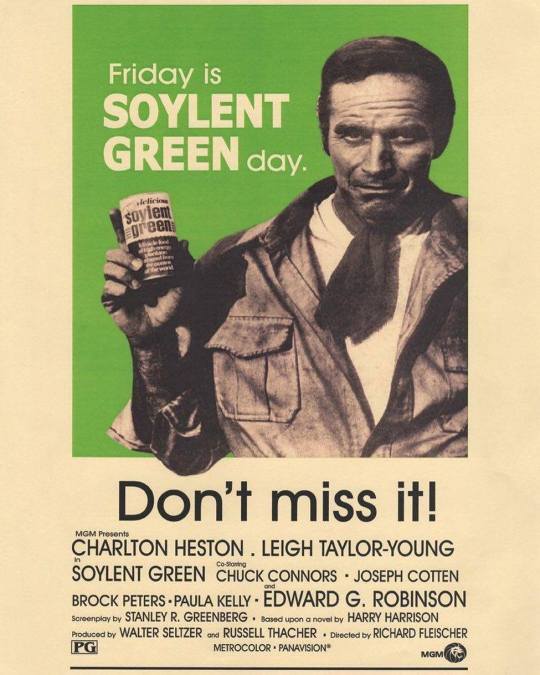
Soylent Green (Richard Fleischer, 1973)
#soylent green#richard fleischer#scifi#retro scifi#science fiction#charlton heston#harry harrison#cult#cult movies#1973
64 notes
·
View notes
Text
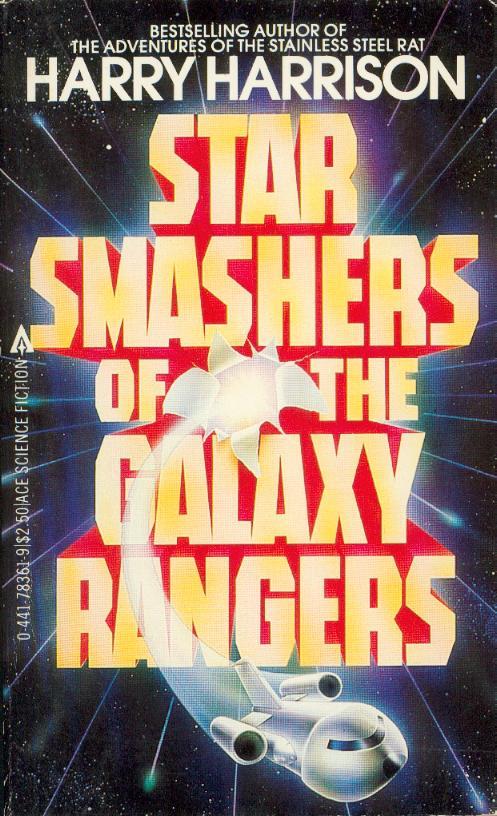
#star smashers of the galaxy rangers#harry harrison#science fiction#book poll#have you read this book poll#polls
10 notes
·
View notes
Text
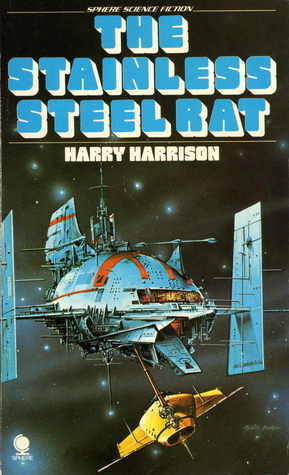
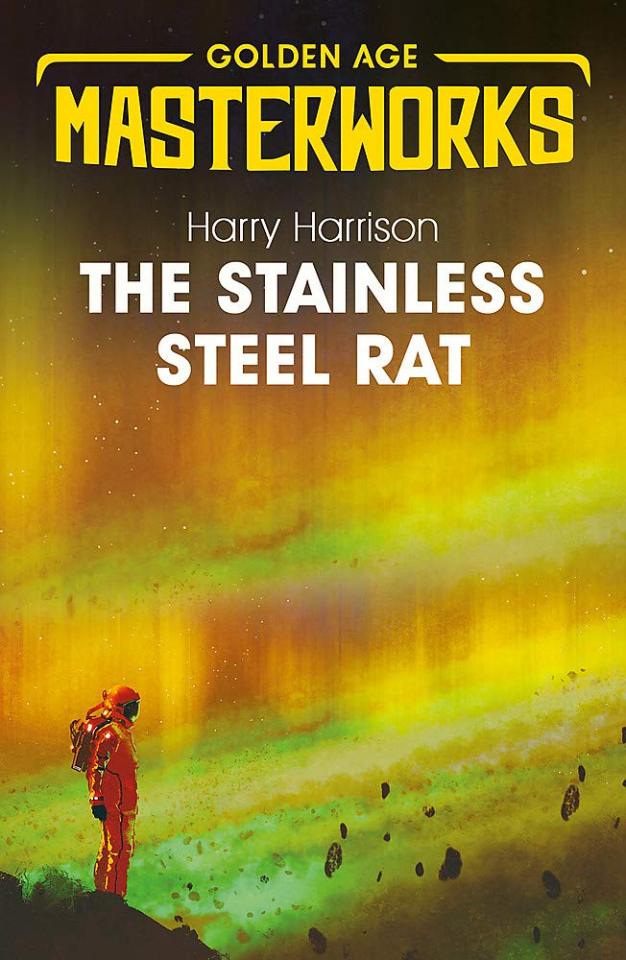
vote yes if you have finished the entire book.
vote no if you have not finished the entire book.
(faq · submit a book)
3 notes
·
View notes
Text

Harry Harrison : 14 Novel Collection : Free Download, Borrow, and Streaming : Internet Archive
8 notes
·
View notes
Video
youtube
New Nightmares - Them
#new nightmares#kurt vonnegut#martin amis#thomas disch#michael moorcock#harry harrison#lisa tuttle#edward said#bruce sterling#alan grant#john brunner
4 notes
·
View notes
Text

Peter Elson artwork for the cover of The Stainless Steel Rat Wants You! by Harry Harrison.
35 notes
·
View notes
Photo




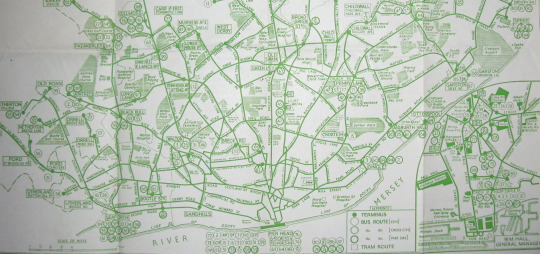



Liverpool Corporation Passenger Transport bus route map from Summer 1954 [HQ] + vintage Liverpool buses (1953, 1954, 1956, and 1957) [x]
#paul's bus love#1950s#maps#early liverpool#i was googling current bus routes and then thought about the vintage bus fans#and thought hey i wonder if someone has an old route map uploaded#not 1956 and the trams were being phased out so the routes probably did change a lot in the next few years#but look at the detail on this thing#i took a zoom shot but click the HQ its a wonderful map of liverpool#i wish i had been using this the entire tune in read#resources#mine#to post#harry harrison#was in charge of making this route run right every day#impressive#the route i was looking up was woolton (top right) to ford (bottom left) shown in the first zoom#couldnt find any vintage liverpool buses in red#looks like it was common for buses to run about 7 years from purchase#the cover is from a 1960 map im cheating a bit
20 notes
·
View notes
Photo
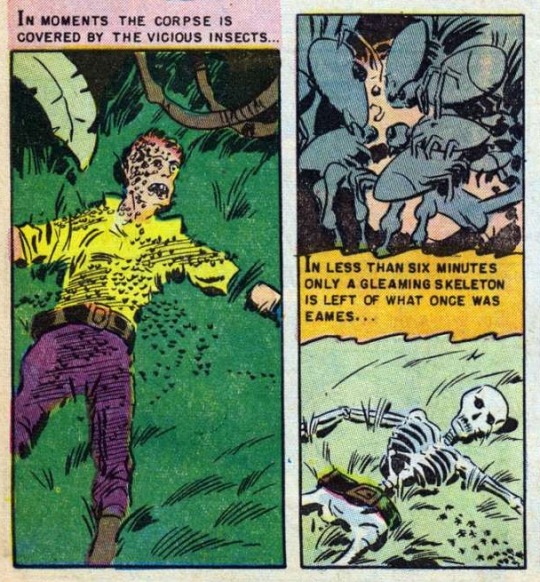
Chilling Tales, 1952
#Chilling Tales#1952#50's#50s#Harry Harrison#Illustration#comics#comic art#comic trip#painting#artwork#illustrations#comic book#vintage pulp art#vintage comic books#decomposition#rotten#skeletonization#anatomy#putrefaction
23 notes
·
View notes
Text
Short reviews of Lovecraft RPF
One of the subsets of my Lovecraft obsession is finding and exploring fiction about Lovecraft, and I finally wrote up my short impressions of most fiction works about Lovecraft that I read/watched. Some of these definitely need larger reviews, and maybe will get them in the future, but one has to start from somewhere and these writings can at least make a foundation for them.
So, let's start. Some mild spoilers may appear.
Shadows Bend by David Barbour and Richard Raleigh: Lovecraft and Robert Howard travel the West of the USA during the Dust Bowl, persued by monsters. I'm surprised that these two meet so rarely in fiction - I mean, they never did in real life, but it still sounds like an obvious idea. Clark Ashton Smith also makes an appearence. I enjoyed the "road movie" feel of the book, and it seemed like the author tried to weave in some lore from the Bishop collaborations, which is the thing I'd love to see more often; however, the book was too plotless and the characterizations too exaggerated, too reliant on the out of date scholarship.
Gilgamesh at the Outback by Robert Silverberg: Another one about HPL and REH meeting, this time in hell. I skimmed this one, reading only the parts about them. Lovecraft is rather bland here, while REH is just bizarre. He has an over-the-top crush on Gilgamesh. WTF was going on in the Robert Howard scholarship in the eighties???
The Planet of Tastless Pleasure by Harry Harrison: One scene parodies Gilgamesh at the Outback. I enjoyed this one more than the Silverberg's book. I like Harrison's humor, what else to say?
Marblehead by Richard Lupoff: I already wrote a large review of this one. Well-researched and I guess well-characterized, but so dry that I'm afraid it doesn't live to the fullest potential. Everything just ends up feeling strangely muted, which is especially jarring in combination with the sensationalist plot and very pulp culmination.
Pages Torn from a Travel Journal by Edward Lee: Ooooof. Lee is not a bad writer, and unlike many others writing about Lovecraft, he clearly knows a lot about him and likes him very much. The other things he likes are (1) rednecks, (2) gore, (3) rape porn. The book is full of all these things and you can make a guess about how well they mix with Lovecraft. In spite of how gleefully campy the book is, the treatment of redneck characters is more sympathetic than I usually see in redneck horror, which is a plus, I guess? On the other hand, Lovecraft getting into an adventure during one of his bus travels seems such an obvious idea for a story, I'm surprised it doesn't get used often.
Trolley 1852 by Edward Lee: I liked this one less than the previous one. It's more creative though, and closer to Lovecraft's kind of horror - which is not surprising, considering that the major part of the book is supposed to be "written" by him as a book within a book (while Pages was rather, ehhh, "historical fiction".)
Pulptime by Peter Cannon: New York period Lovecraft meets aged Sharlock Holmes. Hijinks predictably ensue. A cute calm story which is probably good for removing unpleasant aftertaste of Lee's books (that's how it worked for me, anyway.) What bugged me was that the plot felt too thin for a mystery, and the author seemingly treated the anti-immigrant sentiment of The Horror at Red Hook too uncritically. Lovecraft's characterization was okay, Cannon is better at it than most, but in this book it relied on quoting too much.
The Lovecraft Chronicles by Peter Cannon: Definitely a better book than Pulptime, and the best exploration of the question "What if Lovecraft lived longer?" so far. May get too farcical at places, but I think Cannon finds a good balance between crackfic and seriousness.
The Night Ocean by Paul La Farge: A Very Intellectual postmodernist book which is also a kinda shitposty Lovecraft/Barlow slashfic. Absolutely not worth the hype it had been met with in some mainstream big journals. As far as Lovecraft's characterization goes, I'd say the author tried, however, it's still weirdly superficial and subtly mean-spirited. The treatment of Barlow is even more dissappointing - he was meant to be the center of the book, but the author seems strangely dismissive of his literary and scholarly work and desinterested in his personality. Besides, the majority of the book is not even about them, but about the dull original characters and endless cameos of other historical characters.
Night Gaunts by Brett Rutherford: The play is written by a fan from the zine fandom, and it shows: both in solid characterizations and in bad poetry. I liked this one.
The Lamp of Alhazred by August Derleth: A sentimental story about Lovecraft's legacy. One of the better Lovecraftian works by Derleth, and certainly the one with most feeling.
Balsamo's Mirror by L. Sprague de Camp: Good old "but you probably wouldn't be priviledged in your favorite historical period, gotcha". I've seen better works that poked fun at Lovecraft.
When Death Wakes Me Up to Myself by John Shirley: I was so impressed with this one that I've already reviewed it. What I like the most about it is that it's catches the cosmic wonder aspect of Lovecraft's personality, which was just as important for his life and work as cosmic horror, yet gets written about so less often.
HPL by Gahan Wilson: A story by Gahan Wilson about Lovecraft being a brain in a jar could have been more entertaining.
The Lurker in the Shadows by Nathan Carson: It starts as a very indulgent story about correspondence between the elderly Lovecraft and Stephen King in the 1970s, and then takes an unexpected turn into dark comedy about body switching. Simultaneously one of the least racist portrayals of Lovecraft and one of the most villainous ones, though I'm afraid the author didn't think it through. On the other hand, it's not often that you read about Lovecraft marrying Beyonce.
Lovecraft in Heaven by Grant Morrison: Bad trip.
Night-Gaunts by Joyce Carol Oates: An examination of Lovecraft's life, or, rather, an alternative Lovecraft. Unfortunately, it's one of these tiring takes that talk about how Unhappy, Troubled and Neurotic Lovecraft was, and how Gothic and Gloomy his life was. As far as Oates stories go, this one is far from her best, very slow-going and hard to follow at times. More could have been done with the possibility of Lovecraft's father living longer than he did, though I agree he would probably leave less favorable impression on Lovecraft in such case.
The Premature Death of H.P. Lovecraft, Oldest Man in New England by Thomas Ligotti: Seems to be an another take on body hopping, but subtly so? Very short. Well-written, but I'd expect more from a Ligotti story about Lovecraft.
The Exiles by Ray Bradbury: Lovecraft appears in one version of the story, sitting near the fireplace and eating ice cream. Everyone in this story is benevolently caricatured, so I'm fine with it.
Letters from an Old Gent by W.H. Pugmire: The style reads nothing like Lovecraft (but I think it wasn't really the intention, anyway) yet it still works, somehow. Pugmire's case is similar to Lee's, that is, their fondness for Lovecraft is such that it actually improves the quality of their writing. His emotional intellect also appears to be more developed than in most other Lovecraftian writers.
Lovecraft by Hans Rodionoff and Enrique Breccia: A mix of Lovecraft's biography (in the out of date interpretation) and the usual "but what if what he wrote was real???" I heard there were plans to make a Hollywood adaptation of it, and it certainly felt like one at times. The art was great, but the story was way too visceral and hysterical for either Lovecraft's biography or Lovecraftian horror.
Providence by Alan Moore and Jacen Burrows: Well-researched and well-thought out. Moore definitely cleaned out his Lovecraft game after the dissappointing Neonomicon. The comic is more about Lovecraft's characters, Lovecraft himself appears only in one issue, but plays an important role in the entire story (well, duh). His characterization is satisfying both as realism and as metafiction, though the usual Moore bullshit is still present in small amounts. Not a huge fan of art, and Lovecraft gets black hair yet another time (and looks like in his forties at 1919).
The Strange Adventures of H.P. Lovecraft by Mac Carter: I don't remember this one well, but I remember that Lovecraft here doesn't have much in common with the real one neither in personality, nor in biography, nor in looks. Some things are done with the "underappreciated artist" part of his life, but without the context of his life, they don't amount to much.
H.P. Lovecraft: He who Wrote in the Darkness by Alex Nikolavitch and Gervasio-Aon-Lee: Well, this one is a straightforward biography of Lovecraft, or, rather, his life from 1925 on. As such, it was alright. I liked the way the artist used colors, and that some people from Lovecraft's life like Loveman got more attention than they usually do.
One Night with Lovecraft (Une nuit avec Lovecraft) by Philippe Marcele and Rodolphe: A fan from the future gets a chance to hang out with Lovecraft in the 1930s. Not bad, but had too much padding at times - do we really need shortened adaptations of some Lovecraft's (and one Poe's!) stories within such kind of comic? The artist was great at drawing urban landscapes, but much worse at drawing people.
R.H.B. by Andreas and Riviere: An old French comic about Barlow, his time with Lovecraft and later life. This one would have been better if the artist knew what Barlow looked like. His real appearence would go well with the artist's style.
Rough Riders: Ride or Die by Adam Glass: Lovecraft briefly joins the main team as someone who can see ghosts. I liked the main characters, who were also historical personalities, but Lovecraft himself was super bland. At least the art was decent (and he didn't look grotesque like he often does in the comics.)
Out of Mind: The Stories of HPL: This one is memorable, but mostly because of the actor's performance. The plot is a mess.
#lovecraft#h.p. lovecraft#lovecraft as a character#lovecraft in fiction#my reviews#review#robert howard#robert silverberg#harry harrison#edward lee#peter cannon#the night ocean by paul la farge#august derleth#sprague de camp#john shirley#joyce carol oates#thomas ligotti#wilum pugmire#alan moore#providence comic#out of mind
21 notes
·
View notes
Text
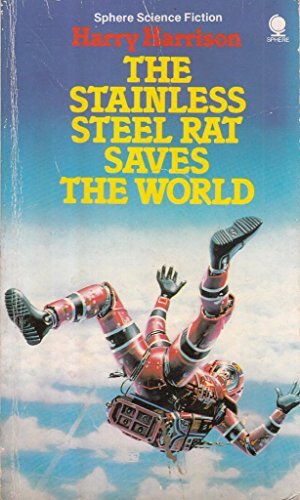
Art by Peter Elson
5 notes
·
View notes
Text
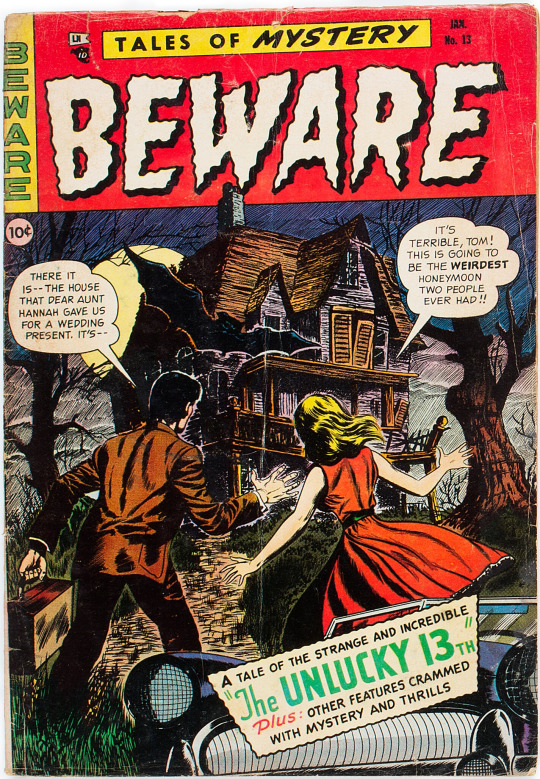
Beware #13 - Trojan, January 1955. Cover art by Harry Harrison.
48 notes
·
View notes
Text
We must be as stealthy as rats in the wainscoting of their society. It was easier in the old days, of course, and society had more rats when the rules were looser, just as old wooden buildings have more rats than concrete buildings. But there are rats in the building now as well. Now that society is all ferrocrete and stainless steel there are fewer gaps in the joints. It takes a very smart rat indeed to find these openings. Only a stainless steel rat can be at home in this environment.
Jim DiGriz in Harry Harrison's THE STAINLESS STEEL RAT
11 notes
·
View notes
Text
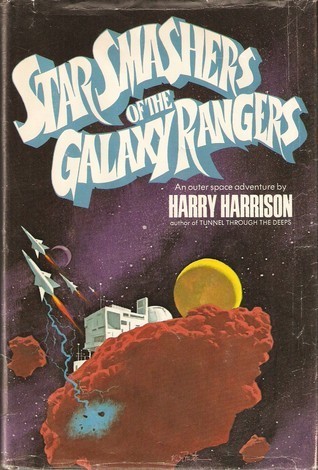

vote yes if you have finished the entire book.
vote no if you have not finished the entire book.
(faq · submit a book)
2 notes
·
View notes